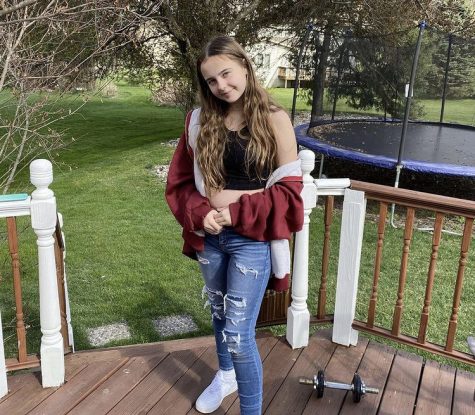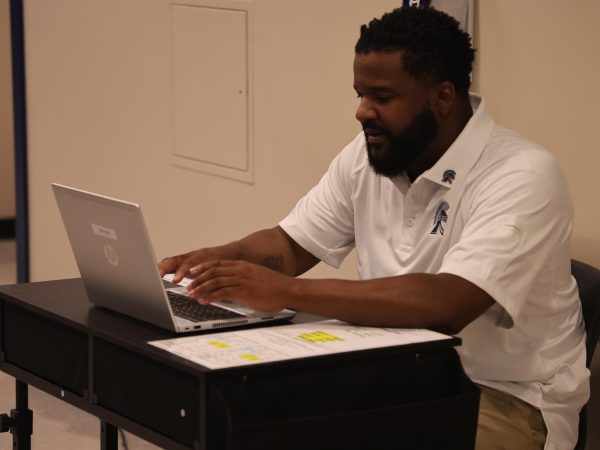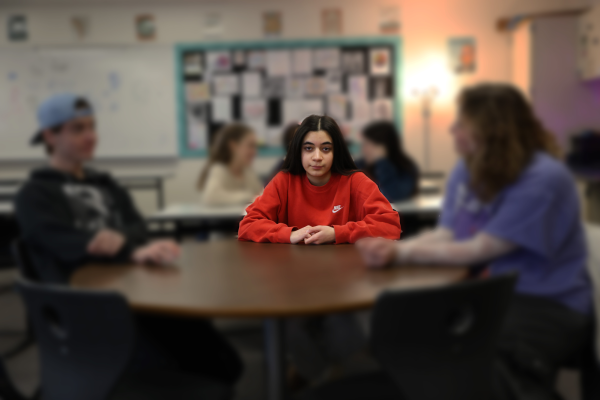Stress schedule
Students struggle waking up early after readjusting to pre-pandemic schedule
Tobias Vanderbush (10) hates getting up early. When he goes to his first hour of AP World History, he barely has the energy to show up, let alone turn in daily assignments, especially with having an AP class for his first hour. He feels like he can never give 100 percent to his teacher.
“During the COVID-19 pandemic my grades were better because I had more homework time,” Vanderbush said. “Along with my grades this year I have been trying to keep up but there is just way too much homework with such little time to do it.”
Vanderbush’s experience is shared by many after the district chose to revert start times back to 7:45 a.m. after a year of starting at 11:00 a.m or later.
And it’s not just students who think school starts too early. Psychology teacher Jade Bennett, also thinks that 7:45 a.m. is too early for students to start because she teaches that teenagers need nine or nine and a half hours of sleep per night, which is more than the average adult. In order for this to happen, most students would need to be in bed no later than 9 or 9:30 p.m. each night.
However, she doesn’t know many teens who go to sleep so early because they balance schoolwork on top of extracurricular activities, jobs and time to spend with their loved ones. And the consequences of not getting enough sleep are always negative, no matter what age you are.
“[When you don’t sleep enough], your energy levels are affected and you’re also limiting your cognitive abilities,” Bennett said. “With teens needing more sleep than young children, I do wish there was a way to have teens start later than elementary students do because it makes more sense.”
But not all students feel like the early start time affects them negatively. Ginger Johnston (10) enjoys getting up early for school. It jumpstarts her day and energizes her even though it is early. Even last year when later starts were every day she still woke up early, just not as early as she does now.
“During the pandemic I would go running with my mom,” Johnston said. “I loved to spend quality time with her by myself. She has four kids so time alone with her was always great. We would run anywhere from six to thirteen miles and we even ran in three half marathons together.”
According to News Medical Life Sciences, poor sleep causes higher levels of stress. During the COVID-19 pandemic the effects of poor sleep were less because more teens gained the recommended amount of sleep which allowed their stress levels to decrease. These changes in hours of sleep allowed more teens to have more energy during the weekdays to get their homework done. But prior to the COVID-19 pandemic, teenagers’ sleep schedules were still a global concern.
Studies conducted by the American Academy of Sleep Medicine said not getting enough sleep affects teenagers’ academic performance and can cause them to have lower grades.
Vanderbush feels that there are also other things that are going on in students’ lives on top of school so they can’t get all of their work done and turned in on time.
“You should be able to relax in the morning and be ready to start a new day instead of having a laundry list full of stuff that you need to get done before school starts, so with there being late starts that would benefit you,” Vanderbush said.

Jade Westjohn is a member of the Class of 2024 and one of the staff writers and copy editor for Portrait. This is her second year on staff as a junior....








